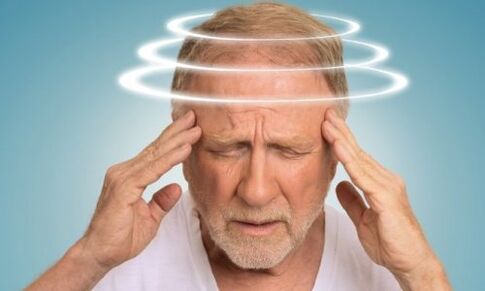Experts call the prostate the most vulnerable organ in men. Prostatitis is the most common, causing a lot of discomfort to the patient. If the inflammatory process persists for more than 3 months, we can talk about the chronic form of the disease. The problem of how to treat chronic prostatitis is faced with each representative of the stronger sex. It is possible to cure the disease, but this will require qualified medical assistance. You should not delay the complex treatment of a chronic disease, as it provokes the appearance of adenomas and prostatic hyperplasia, as well as a decrease in erectile function.

What does diagnosis mean?
Usually, men do not tend to listen to their own health, so the inflammatory process in the prostate takes place in a prolonged form. The danger of the disease lies in the fact that it can be completely asymptomatic. First, urethritis develops, if you don't go to the doctor, complications can't be avoided. Over time, chronic prostatitis is formed in men, the symptoms and treatment are individual. Chronic forms of prostatitis:
| Name | Diagnose |
|---|---|
| infection | It occurs due to damage to the prostate gland by a virus, fungus, or bacteria. It is revealed by laboratory analysis of blood and urine. |
| stagnation | It progresses with pain in the pelvic area, often chronic. Symptoms of the congestive form are sometimes similar to those of the inflammatory process. |
| No symptoms | There is no clinical manifestation of inflammation, which is why a man may not see a doctor for a long time. Only a prostate exam can diagnose the disease. |
Many men are diagnosed with chronic congestive prostatitis (non-infectious etiology). The inflammation in this case affects the secretion of the prostate gland and the veins.
The reason for appearing
The causes of chronic prostatitis are diverse:
- Abstaining from prolonged intimacy or an overly active sex life;
- Presence of some trauma to the perineum (when riding a bike or riding a bike);
- Unreasonable menu (lack of nutrients and excess of fried, fatty, smoked foods);
- Repeated infections of the genital organs;
- Decreased immunity;
- Diseases of the urogenital organs;
- Sedentary and sedentary lifestyle;
- Underpants are too tight and tight;
- Coitus interrupted;
- Historical foreskin stenosis;
- Anal sex without additional protection (condom).
The disease affects both the elderly and middle-aged and even young men:
- With an irregular sex life, prostatitis occurs because the secretion of the prostate gland is stopped.
- Athletes are at high risk because they lift weights and are susceptible to microscopic damage of the prostate.
- Pilots of long-haul flights suffer from blood stagnation in the pelvic organs.
- Winter fishing fans are at risk due to the constant hypothermia of the body.
Among the common male diseases, chronic prostatitis accounts for about 20%. Every fifth patient consulted with a doctor has some form of chronic illness. This disease is increasingly "rejuvenating" due to promiscuous modern guys, not thinking about their own safety. In order not to wonder about how to get rid of chronic prostatitis, you need to take care of the basic protection from sexually transmitted diseases.

It is worth thinking about the fact that the chronic form of the disease leads to a violation of the erection of the penis and a decrease in sexual satisfaction during ejaculation. On this basis, fear of closeness, irritability, lack of confidence begin. All of this further leads to psychosis on a sex basis.
Ways of infection
Doctors note two ways of spreading an infectious form of prostatitis:
- Urinogenic (ascending). Specific microorganisms through the urethra enter the prostate gland. The bile of the prostate gland is normally sterile, and no bacteria can be detected on examination. There are cases where microorganisms live in the body of a man, but their concentration is not enough for the development of the disease. If the microflora is disturbed, the organ becomes infected, which leads to the development of inflammation. The risk of infection and damage to nearby organs cannot be excluded, when men have hemorrhoids or cystitis. In this case, dangerous microorganisms enter the prostate gland through the lymphatic route.
- Hematology. The infectious agent enters the prostate gland through the bloodstream. The diseases that can cause this type of infection are diverse: acute flu, tooth decay, etc. v. If there is a parallel venous obstruction in the prostate, the risk of chronic prostatitis is high, and the treatment will take a long time.
Urologists identify two factors that predispose to sepsis:
- Natural. Anatomical features of the prostate gland, including changes in the structure of muscle tissue or disorders in the circulatory system.
- Buying. Causes of chronic prostatitis include genital trauma, cravings for alcohol, prolonged smoking, history of infectious disease, and frequent hypothermia.
The danger of ignoring the disease lies in the fact that, at this stage, the symptoms of chronic prostatitis in men are often absent or insignificant. Patients believe that the disease can be cured by folk remedies, but these methods are not effective. Treatment regimens are only made by a specialist after a thorough examination and collection of necessary information.
Warning signs
Symptoms of chronic prostatitis are different, depending on the stage of the disease and its form:
| Form | signal |
|---|---|
| Bacteria (infectious) | Weak feeling, chills, fever, muscle aches, lower abdominal pain (may be aggravated by intercourse and prolonged abstinence), pain when urinating, weak pressure when urinating, frequent urination at nightnight. Pain can be observed in the thighs, perineum, and rectum, which is why the signs of chronic prostatitis are confused with hemorrhoids. |
| Specific bacteria | All the above signs are observed, possibly additional discharge from the urethra, resembling mucus. |
| bacteria | The symptoms of congestive prostatitis are difficult to ignore because of the intense pain. It is localized in the perineum and thighs. Discomfort at the tip of the penis. The pain is aggravated by interruption of sexual intercourse, as well as by prolonged abstinence. |
The consequences of chronic prostatitis depend on the duration of the disease:
- adenomas;
- Cancer;
- Sclerotherapy of the prostate and bladder neck;
- Erectile dysfunction;
- Dry;
- Reduced testosterone levels.
The danger of the disease is not only that, prostatitis can be confused with other diseases. If the acute phase passes, the symptoms of chronic prostatitis disappear and no treatment is instituted. The man no longer worried about his health and did not go to the doctor. However, there comes a time when the signs begin to cause severe discomfort and interfere with normal life, but the disease has progressed to a protracted stage. Treatment of congestive prostatitis will take longer if the disease is not diagnosed in its early stages.

Diagnose
The symptoms of other diseases are very similar to those of chronic prostatitis. Is it possible to cure the disease without an examination? This is unlikely, as only an accurate diagnosis can determine the form and stage of development of prostatitis. Discomfort can be caused by:
- tuberculosis;
- adenoma;
- Tumor.
Only a full examination can confirm or rule out the diagnosis. There are two types of research:
- Musical instruments;
- Laboratory.
After talking with the patient and taking a history, your urologist or urologist will order a series of tests:
- Total urinalysis;
- General blood analysis;
- Analysis of the secretion of the prostate gland;
- Blood test for PSA.
A urine sample is taken in triplicate to get more accurate data on the change in composition where:
- epithelial cells;
- White blood cells;
- Pathogens that cause infections;
- Non-specific bacteria.
Doctors know what chronic prostatitis is and how difficult it is to diagnose. Modern transrectal ultrasound (TRUS) allows you to do exactly this:
- A device with an ultrasound probe is carefully inserted into the patient's anus.
- Because the prostate gland is firmly attached to the wall of the rectum, the specialist has a good chance to study the prostate in detail and make an accurate diagnosis.
Conventional ultrasound allows you to determine the change in density of the prostate gland, its size, the presence of fibroids, abscesses and micrographs.
Before curing chronic prostatitis, the doctor must double-check the diagnosis. In cases of slight doubt, the doctor may refer the patient to an MRI or CT scan to rule out the presence of a tumor focal point. If a man has an infrastructural obstruction, an X-ray will be needed to determine the cause of the disease.
Conservative treatment

The treatment regimen for chronic prostatitis is only prescribed by a professional urologist and selected individually for each person. The doctor takes into account the etiology of the disease, the duration of the disease and factors such as an aggravation of the disease. If congestive prostatitis or infection is in its early stages, it can be treated with medication:
- Antibiotic therapy. Prostatitis can be cured with antibacterial drugs if the bacterial agent is detected in the secretions or urine of the prostate gland. Inflammation should be detected. The course of treatment lasts no more than 2 months, the price of chronic prostatitis treatment depends on each drug indicated. The dosage of each drug is prescribed individually, and self-medication is fraught with complications. Reviews after treating prostatitis with antibiotics are not always positive, but there are reasons for this. Sometimes symptoms persist at the end of the course, even though the infection has been defeated.
- Eliminate symptoms. To treat chronic prostatitis in men, people often use drugs that stop the pain. Treatment may also include the use of antidepressants to reduce anxiety levels.
- Alpha blockers. These medications are prescribed if your doctor diagnoses bladder hypertonia or increased pressure in the mouth. However, the drug is not effective if the patient has pelvic floor muscular dystrophy or impaired muscle nourishment.
- hormone therapy. It is done on the basis of the results of a hormonal examination. Androgens and antiandrogens are used.
- Vitamin therapy. With improper nutrition, deficient nutrients are replenished due to vitamin-mineral complexes. Experts don't recommend replacing it with popular dietary supplements, as "condoms" won't help in any way.
- Normalize uric acid levels. The treatment of chronic prostatitis with the help of regulators is only effective when there are stones in the prostate gland.
- Immune stimulants. Prostatitis is treated this way only with laboratory-proven immunosuppression.
Answering the question of whether chronic prostatitis is curable, we can safely say that recovery comes quickly with a properly prescribed complex.
Treatments that work
Usually, the disease does not require surgical intervention, except in cases where complications threaten the patient's health, even the life of the patient. Modern surgical methods of endoscopic intervention to reduce risks and harm to health. Surgery is indispensable for:
- adenoma;
- Tuberous sclerosis disease;
- Stones in the prostate gland;
- Hardened prostate gland.
Effective treatment of chronic prostatitis allows you to do without surgery if a man seeks timely medical advice. Do not forget that at the exacerbation stage of the disease, surgical intervention cannot be performed. The need for such a basic method of treatment is determined only by the surgeon after studying the overall clinical picture.
Other methods of treatment
Often, men worry about whether chronic prostatitis can be cured by not taking medicine. Your doctor may actually prescribe other methods:
- Massage. Do not forget about contraindications and the fact that only a small area of the prostate is available for massage. If there are hyperplastic changes in the prostate gland, massaging can lead to acute urinary retention. Thus, this stimulates further spread of inflammation and development of sepsis. Massage is also prohibited in the presence of venous stasis, prostate cysts and stones in the prostate gland. If you need to get rid of the blockage, release the prostate naturally through ejaculation.
- Special gymnastics. It is used to strengthen the bladder and prolong the time between urinations. Improving the tone of the sphincter and bladder allows you to set a break between bowel movements up to 5 hours. Exercise has no effect on neurodystrophic changes and myofascial syndromes.
- Muscle stimulation. When pelvic floor muscle tone is reduced, magnetic therapy, electroacoustic therapy, transrectal ultrasound, or electrical stimulation are used.
- Infiltration. It is practically not used in modern medicine, since the infusion of the drug into the urethra is accompanied by pain and does not cure prostatitis. The consequences of such treatment can be disastrous.
You'd better ask a male or urologist about how to treat congestive prostatitis with folk remedies. Popular videos on the Internet are rife with videos about the qualitative uses of tinctures and pumpkin seeds, but no method can replace drug treatment. The degree of treatment of this disease is also determined by the doctor, not the YouTube heroes.
Useful exercises
Doing simple exercises will improve blood microcirculation in the pelvic area. They can be done in the morning instead of the usual exercises:
- Secure your feet shoulder-width apart, raise your arms, and connect them behind your head. Inhale - slowly sit down and spread your knees to the sides, exhale - return to the starting position.
- Connect the legs together, arms freely lowered along the body. Bend left leg at knee, lifting as high as possible. Repeat the same with the right leg. Run 10 approaches.
- Squat down, palms down. Inhale - slowly rise, spreading your arms to the sides. Exhale - return to the starting position.
- Lie on your stomach after placing a small ball underneath (no bigger than a tennis ball). Focus on the floor and roll the ball on the floor with your belly. Run 7 approaches.
- Lie on your back, knees bent. Clip the ball between them. Inhale - squeeze the knees, exhale - relax. Do 3 sets, eventually increasing the number of repetitions up to 9 times.
- Sit on the floor, focusing on your hands. Place a ball under your butt. Try to roll it on the floor with the help of your buttocks and genitals.
Helps fight diseases and Kegel exercises, useful not only for women but also for men.
Possible forecast
Instead of looking for information on how to live with chronic prostatitis, it may be more helpful to make an appointment with a specialist. With timely access to a doctor and a properly selected course of treatment, you can improve your health. The question of whether chronic prostatitis can be completely cured has been clearly answered. It all depends on what methods the doctor prescribes, and how accurately the patient follows his recommendations.
Experts are very cautious in making predictions regarding the next course of the disease. Cure chronic prostatitis is guaranteed? Full recovery is seen only in rare cases, as most of the disease will go into prolonged remission. Normalization of urine and blood parameters is noted, symptoms completely disappear. However, if the doctor's advice is not followed, the disease can cause discomfort and complications.



























